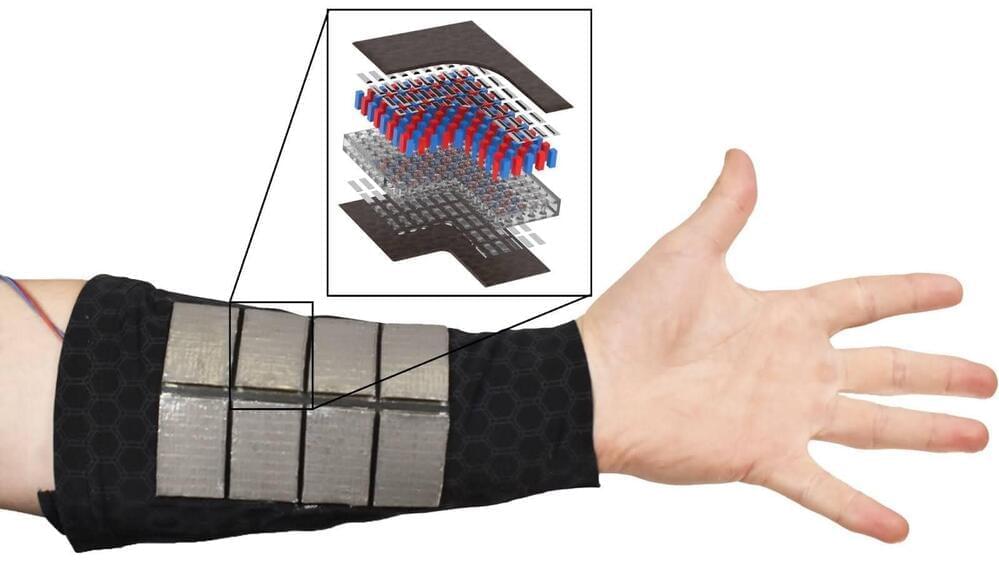In the age of technology everywhere, we are all too familiar with the inconvenience of a dead battery. But for those relying on a wearable health care device to monitor glucose, reduce tremors, or even track heart function, taking time to recharge can pose a big risk.
For the first time, researchers in Carnegie Mellon University’s Department of Mechanical Engineering have shown that a health care device can be powered using body heat alone. By combining a pulse oximetry sensor with a flexible, stretchable, wearable thermoelectric energy generator composed of liquid metal, semiconductors, and 3D printed rubber, the team has introduced a promising way to address battery life concerns.
“This is the first step towards battery-free wearable electronics,” said Mason Zadan, Ph.D. candidate and first author of the research published in Advanced Functional Materials.
